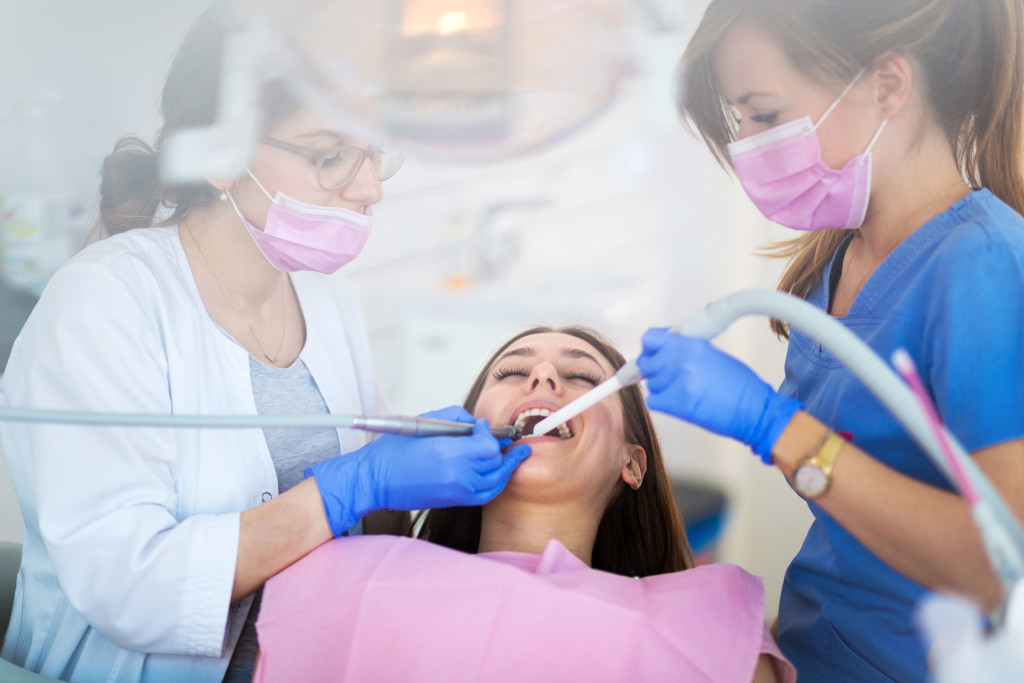- Losing your tooth can be a shocking experience, but there are steps you can take to address the issue.
- Common causes include gum disease, dental trauma, tooth decay, and tobacco use.
- Losing a tooth as an adult affects overall health beyond affecting your appearance.
- Treatment options are available such as dental implants, dentures, and bridges.
- Consult with a qualified dentist to determine the best treatment option for you.
Losing your tooth as an adult can be a shocking and confusing experience. It’s not something we expect to happen, and it can be challenging to know what to do next. However, while it may feel overwhelming, there are steps you can take and options available to help you get your oral health back on track.
Common Causes of Tooth Loss in Adults
Tooth loss in adults is surprisingly common, and various factors can cause it. The most common causes are periodontal (gum) disease, dental trauma due to accidents or injuries, tooth decay, and even genetics. Whatever the reason, losing your teeth as an adult can have serious implications for your overall health and well-being.
Periodontal Disease
Periodontal disease is an infection of the gum tissue that occurs when bacteria accumulate around the teeth and gums. If left untreated, it can lead to inflammation, receding gums, loose teeth, and tooth loss. Several risk factors are associated with this condition, including poor oral hygiene, smoking, diabetes, genetics, age, and certain medical conditions such as HIV/AIDS or cancer. Poor oral hygiene is one of the leading causes of periodontal disease, so brushing and flossing your teeth twice a day and visiting your dentist regularly are essential.
Dental Trauma
Dental trauma can result from accidents or injuries and can cause significant damage to the teeth and gums. Common types of dental trauma include chipped or cracked teeth, fractured jawbones, and avulsed (knocked out) teeth. Depending on the severity of the injury, dental trauma can lead to tooth loss or other serious complications. Dental trauma can occur in various situations, often due to an accident or injury. Typical instances include contact sports like football, basketball, and hockey; automobile accidents; falls; and other sudden impacts.

Tooth Decay
Tooth decay is another common cause of adult tooth loss. Cavities are caused by bacterial activity and can weaken the enamel on your teeth, leading to decay. Without proper treatment and prevention, cavities can eventually progress to the point where your tooth has to be extracted. Poor oral hygiene is one of the primary causes of tooth decay in adults. Without proper brushing and flossing, bacteria can accumulate on the teeth and gums, leading to cavities and other tooth decay. Other habits that contribute to this problem include:
- Smoking
- Drinking sugary beverages
- Not getting regular dental check-ups
- Not using fluoride-containing toothpaste
Tobacco Use
Tobacco use has a devastating effect on oral health. It increases the risk of periodontal (gum) disease, plays a significant role in tooth decay, and can even lead to mouth cancer. Smokeless tobacco products, such as chewing tobacco and snuff, are especially harmful to teeth and gums. People who use these products are at a higher risk for oral cancer and tooth loss than those who don’t.
Impact on Overall Health
Losing a tooth as an adult can have far-reaching effects on your overall health beyond just affecting your appearance. For instance, missing teeth often result in difficulty speaking clearly, chewing food properly, and even smiling confidently. Additionally, gaps in your mouth are a major contributor to more serious conditions such as gum infections and jawbone degeneration. This is because the surrounding teeth move into empty spaces where the missing tooth used to be, leading to misalignment problems if left unaddressed.

Treatment Options
Fortunately, many treatment options are available for adults who have lost their teeth due to any of the causes mentioned above.
- Dental implants: A metal piece is put into your jawbone, and a false tooth is connected to it. This new tooth looks and works like your real tooth. Dental implants are a long-term solution and can last for decades with proper care.
- Dentures: These are prosthetic teeth that can be used to replace missing teeth. They come in partial or complete sets and can be custom-made to fit your mouth comfortably. This option is great if you’re missing multiple teeth, as dentures can restore your smile.
- Dental bridges: These are a popular option for adults who have lost one or more teeth. This treatment involves anchoring an artificial tooth between two healthy teeth to replace the missing one(s). Bridges can be designed to blend in with your other teeth and provide stability while chewing and speaking.
The best option will depend on individual circumstances, so consulting with a dentist is strongly recommended before making any decisions about treatment options. Consider several factors before deciding on what treatment to pursue. First, it is vital to determine the cause of tooth loss. Is it due to periodontal disease, dental trauma, tooth decay, or another factor? Understanding the cause will help you determine which treatment option is best suited for you. Also, consider your budget and lifestyle when making a treatment decision. Finally, it is essential to consult a qualified dentist who can provide personalized advice.
Losing your tooth as an adult does not have to mean living with gaps in your smile forever! There are many ways for adults who have experienced tooth loss due to periodontal disease, trauma, or decay that allow them to restore their oral health while maintaining their natural appearance and function, so they can confidently smile again. With proper care from yourself at home and regular visits with a dentist, these treatments will last long into adulthood, giving you years of smiles ahead.

